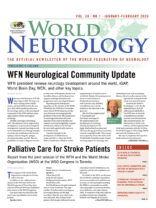Community education programs and the creation of the Neurology Postgraduate Program at the Universidad Nacional Autónoma de Honduras.
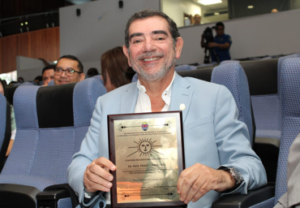 By Marco Tulio Medina, FAAN, FEAN
By Marco Tulio Medina, FAAN, FEAN
Neurological disorders are the leading cause of disability and the second leading cause of death both worldwide and in Honduras. Among these neurological disorders are cerebrovascular disease (or “derrames” in Honduran argot), Alzheimer’s disease, Parkinson’s disease, epilepsy, migraine, developmental disorders among others, which substantially affect the brain health of millions of human beings, including that of our fellow citizens.
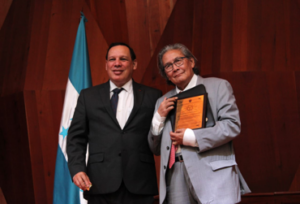 In May 2022, the Assembly of the World Health Organization (WHO) approved the Global Intersectoral Action Plan (IGAP) for Epilepsy and other Neurological Disorders, so that between 2022 and 2031, the countries of the world can improve the approach to brain health through specific actions for prevention, treatment, rehabilitation, and palliative measures.
In May 2022, the Assembly of the World Health Organization (WHO) approved the Global Intersectoral Action Plan (IGAP) for Epilepsy and other Neurological Disorders, so that between 2022 and 2031, the countries of the world can improve the approach to brain health through specific actions for prevention, treatment, rehabilitation, and palliative measures.
As highlighted in the recent scientific article led by Mayoba Owolabi and collaborators, global synergistic actions are required to improve brain health for human development. (The author’s team participated as co-authors and the article was published in 2023 in the British journal Nature Reviews Neurology.)
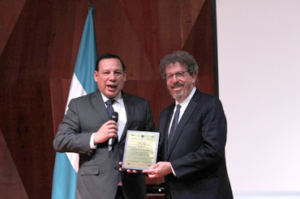 In Honduras, after a process of community intervention, we were able to reduce the frequency of a cerebral parasitosis, neurocysticercosis (incorrectly called “triquina” in Honduras), caused by fecal contamination by tapeworm or Taenia solium worms, in Salama, Olancho, through environmental sanitation measures and the educational campaign “the piggy is not to blame,” among others. Access to anti-epileptic drugs was also improved, thereby reducing the treatment gap.
In Honduras, after a process of community intervention, we were able to reduce the frequency of a cerebral parasitosis, neurocysticercosis (incorrectly called “triquina” in Honduras), caused by fecal contamination by tapeworm or Taenia solium worms, in Salama, Olancho, through environmental sanitation measures and the educational campaign “the piggy is not to blame,” among others. Access to anti-epileptic drugs was also improved, thereby reducing the treatment gap.
The training of human resources has been another great challenge. The creation of the Neurology Postgraduate Program at the Universidad Nacional Autónoma de Honduras (UNAH), 25 years ago, has trained 37 neurologists and neurologists in our country to date. This postgraduate program had the support of the World Federation of Neurology (WFN), as well as the late U.S. professor, Ted Munsat, among many other national and international collaborators.
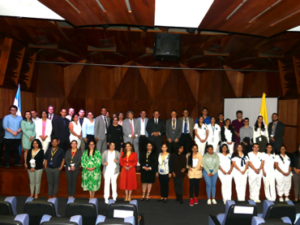 The creation of this postgraduate program had many detractors, who argued that there were not the necessary conditions in Honduras for its development, but despite these critics, the postgraduate course was certified worldwide for its high quality in 2006 by the WFN and named a WHO collaborating center for research and community intervention in epilepsy (HON01), thus supporting the Strategic Plan and action of the Pan American Health Organization (PAHO) between 2011 and 2022.
The creation of this postgraduate program had many detractors, who argued that there were not the necessary conditions in Honduras for its development, but despite these critics, the postgraduate course was certified worldwide for its high quality in 2006 by the WFN and named a WHO collaborating center for research and community intervention in epilepsy (HON01), thus supporting the Strategic Plan and action of the Pan American Health Organization (PAHO) between 2011 and 2022.
On Nov. 6, 2023, at UNAH, we had the presence of the Secretary-General of WFN, Prof. Steven Lewis, our mentor from the University of California at Los Angeles, Prof. Antonio V Delgado Escueta, with whom we have jointly published more than 40% of our indexed scientific papers and who has contributed a patent to UNAH, as well as the distinguished academic and dear Costa Rican friend Prof. Franz Chaves-Sell. Along with the university community, we celebrated a quarter of a century of advances in neurology and the foundation of his postgraduate program of excellence in our alma mater. •
Dr. Prof. Marco Tulio Medina is vice chancellor of International Relations at UNAH and past president of the Panamerican Federation of Neurological Societies.
